-
About APU
-
College of Asia Pacific Studies (APS)
-
College of International Management (APM)
-
College of Sustainability and Tourism (ST)
-
School of Asia Pacific Studies (GSA)
-
Graduate School of Management (GSM)
-
University-wide Education
-
Study Abroad
-
Student Life
-
Career Support
-
Research
-
International & Community Service
-
Library






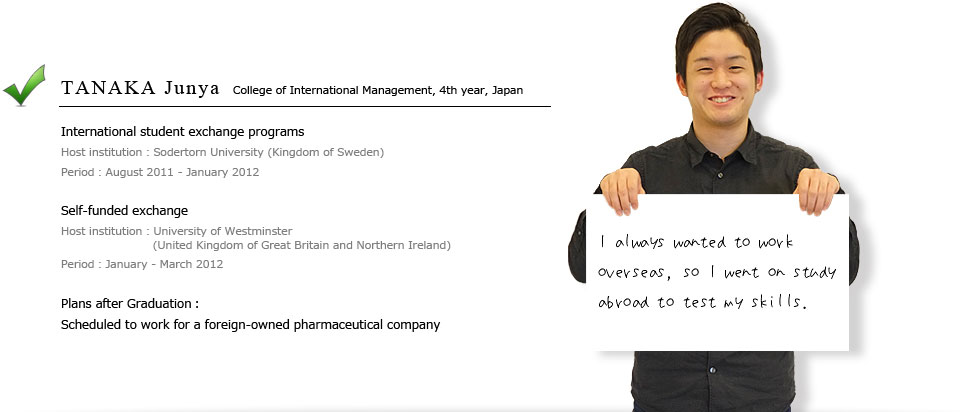
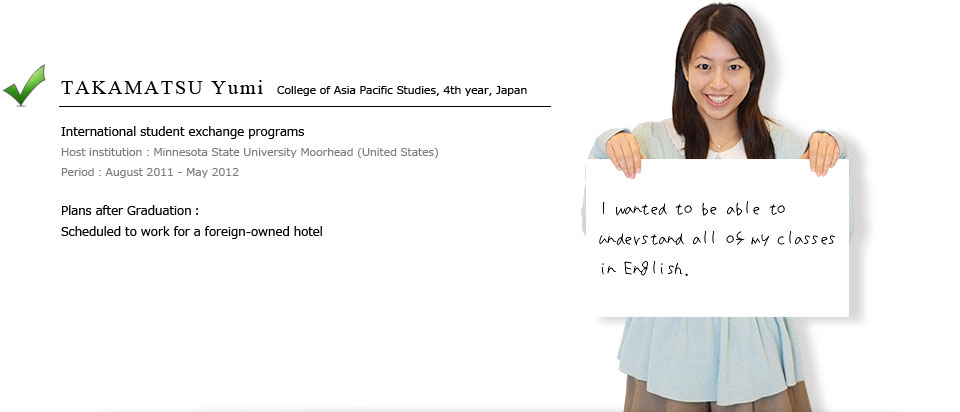
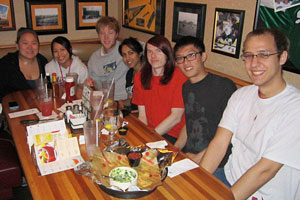
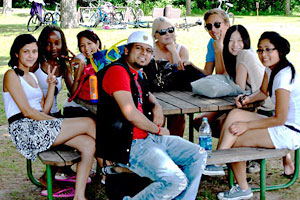
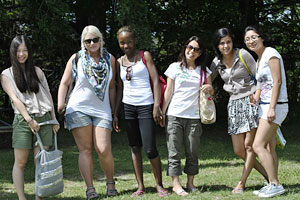

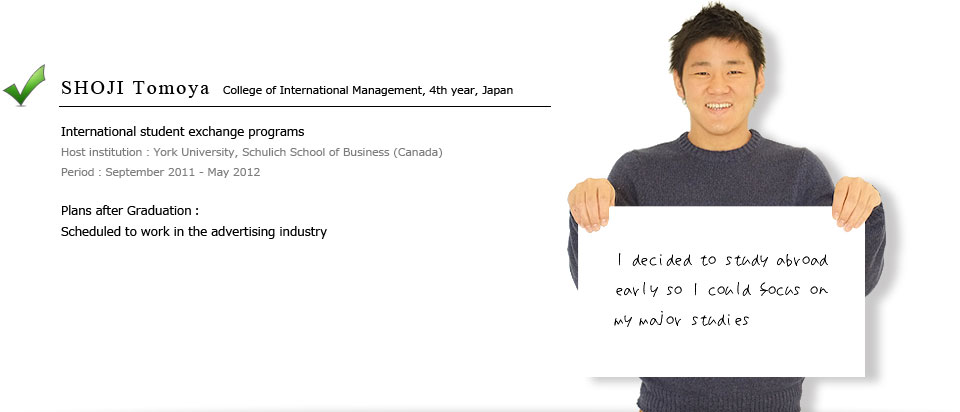
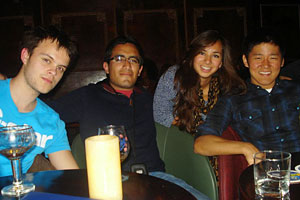
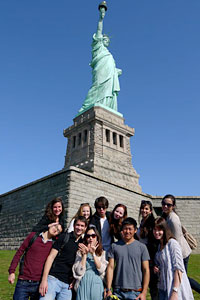
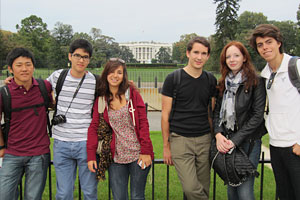



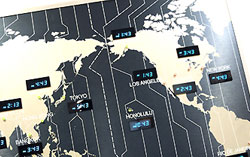








I always wanted to work overseas and test myself on the global stage, so study abroad was the perfect opportunity to test my limits. I figured if I was going to study outside of Japan anyway, I should choose somewhere far away, so I went to Sweden.
I majored in migration studies at my host institution. There was a lot of homework. Every week, I had to read 200 pages and submit essays. In class, I engaged in heated discussions with my classmates. I was often amazed by how smart my classmates were, but I never gave up. I read relevant books and brushed on my history to supplement my knowledge. My experiences on study abroad helped me reaffirm my dream of wanting to work in a global environment.
Frustration with my skills drove me to obtain certifications.
I had been thinking about my career search every since my freshman year because I didn't want to get left behind.
After my exchange program ended, I decided to study abroad in the UK to see if I could keep up with adult learners.
I was the only university student in my class. I studied hard to obtain business English and project management certifications. While I could understand the English being spoken in the discussions classes, I was unable to provide any input since I had very little real world experience. I was frustrated that I couldn't hold my own among the older students on the program, but this motivated me to try even harder, and in the end, I obtained two certifications.
After returning to Japan, I still wanted to work overseas, so I participated in an internship at a foreign-owned company that was arranged by the Career Office. I was interested in the company, so I worked as hard as possible, making sure I didn't miss any opportunities. Later, I attended the company's information session. The company was impressed with my experiences on study abroad and my hard work on the internship and gave me a job offer.
Study abroad is not for everyone. If you really want to study overseas, you have to work very hard and take advantage of the opportunities that come your way. Be strict with yourself and never give up until you realize your dream.